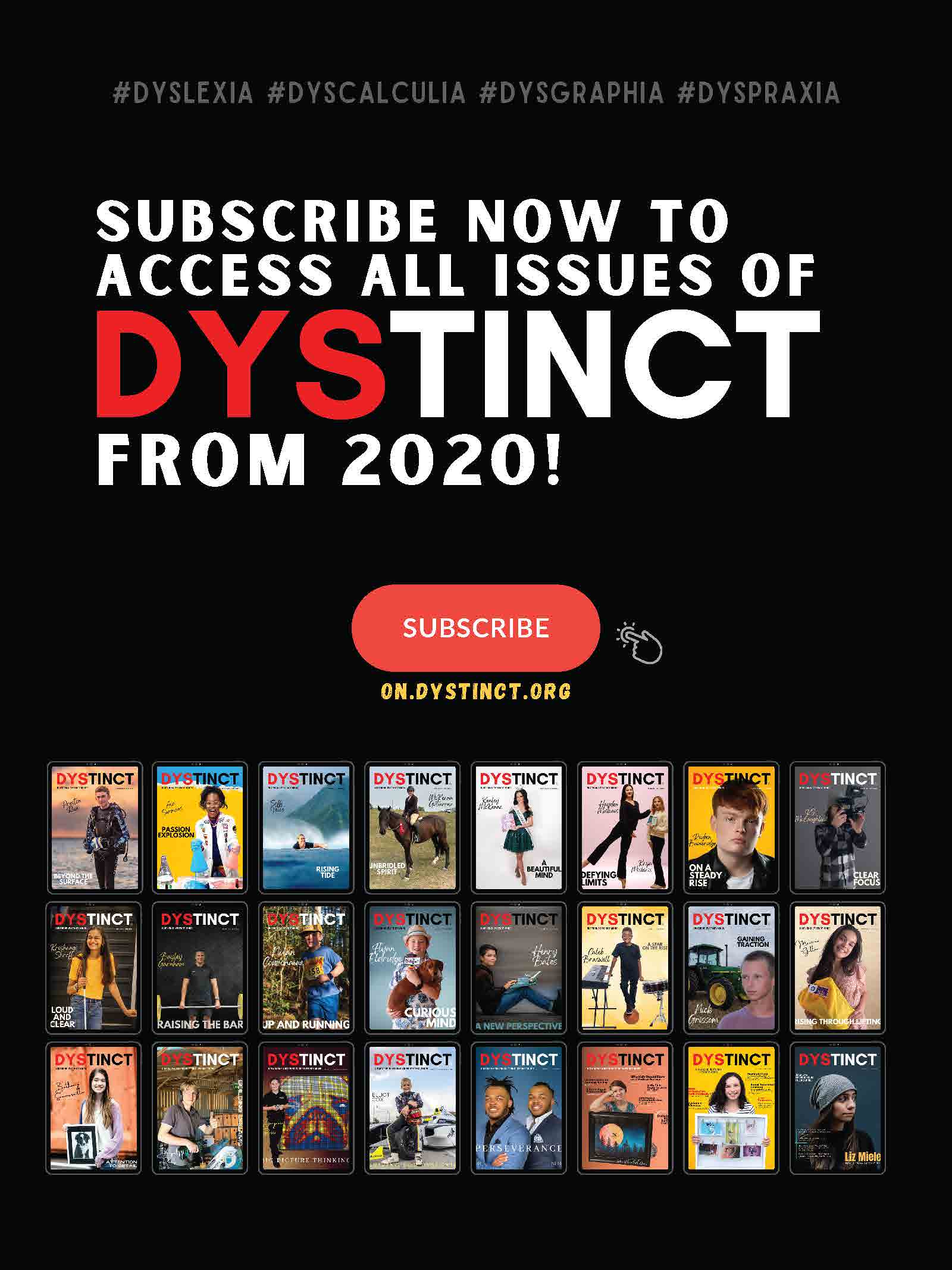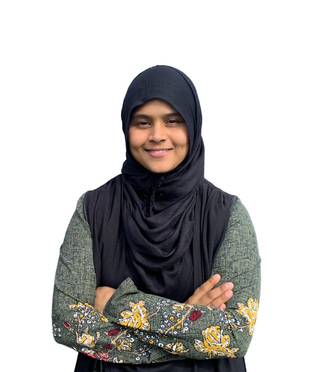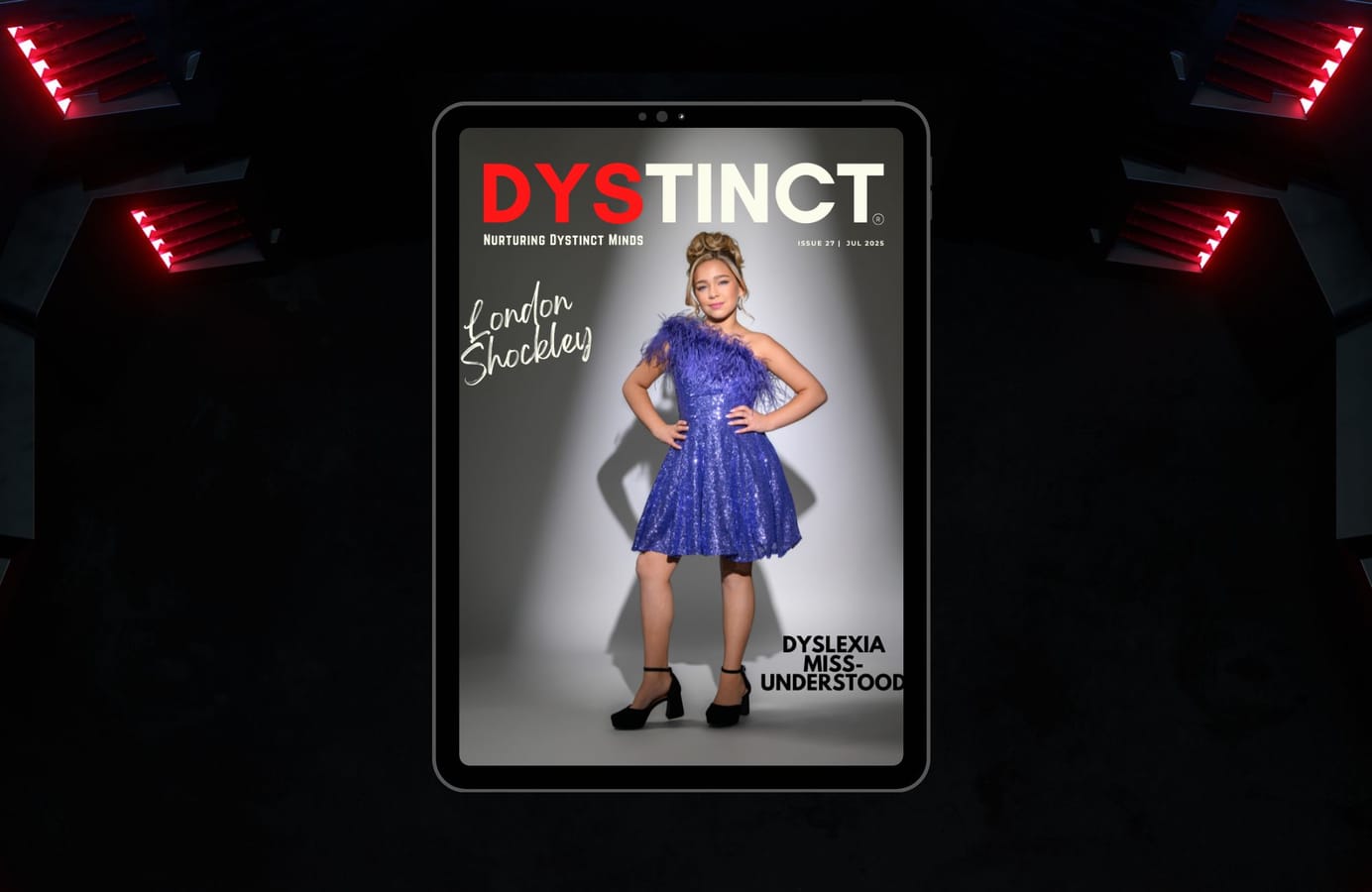
Issue 27: July 2025 Dystinct Magazine
Dystinct Magazine's 27th issue: July 2025 covers inspirational stories from children and adults with learning disabilities (dyslexia, dysgraphia, dysgraphia and dyspraxia) and evidence based articles from leading specialists from the field of learning disabilities.
Table of Contents
There is absolutely nothing more motivating or engaging than the feeling of success and competence.
This quote from Leslee Allen’s article really stayed with me. We talk a lot about motivation. But the truth is, motivation often comes after success, not before. And yet, so many of our children go to school each day feeling like they’re failing, measured against systems that don’t reflect how they learn best. We expect them to stay motivated, to keep showing up and trying hard, even when nothing feels like it’s working.
What if we flipped the script?
What if we focused on creating opportunities for success first?
That tiny win. That first sentence read without stumbling. The maths problem that finally makes sense. The project they never thought they could finish. These are the moments that build belief. They shift how a child sees themselves. And that shift is everything.
As parents, teachers, and supporters, our job is to notice those moments. To celebrate them. To build on them. Because the kind of progress that matters most will not always show up on a report card, but it matters deeply to a child.
As always, I’d love to hear from you!
Get in touch with me at Zahra@Dystinct.org
Thanks
Zahra Nawaz Shafeeq
How To Access Dystinct Magazine
How To Access Dystinct Magazine
👉 Read further below to access all the content of the magazine on the website layout. Check links to each article in Topics covered.
The magazine can be accessed on your mobile and tablet devices.
👉 Apple App Store - iOS iPad/iPhone
👉 Google Play Store - Android devices
👉 Libby Apple iOS | Google Android
👉 Zinio Newstand | MagsFast Newstand | Magzter Newstand
On The Cover
On The Cover
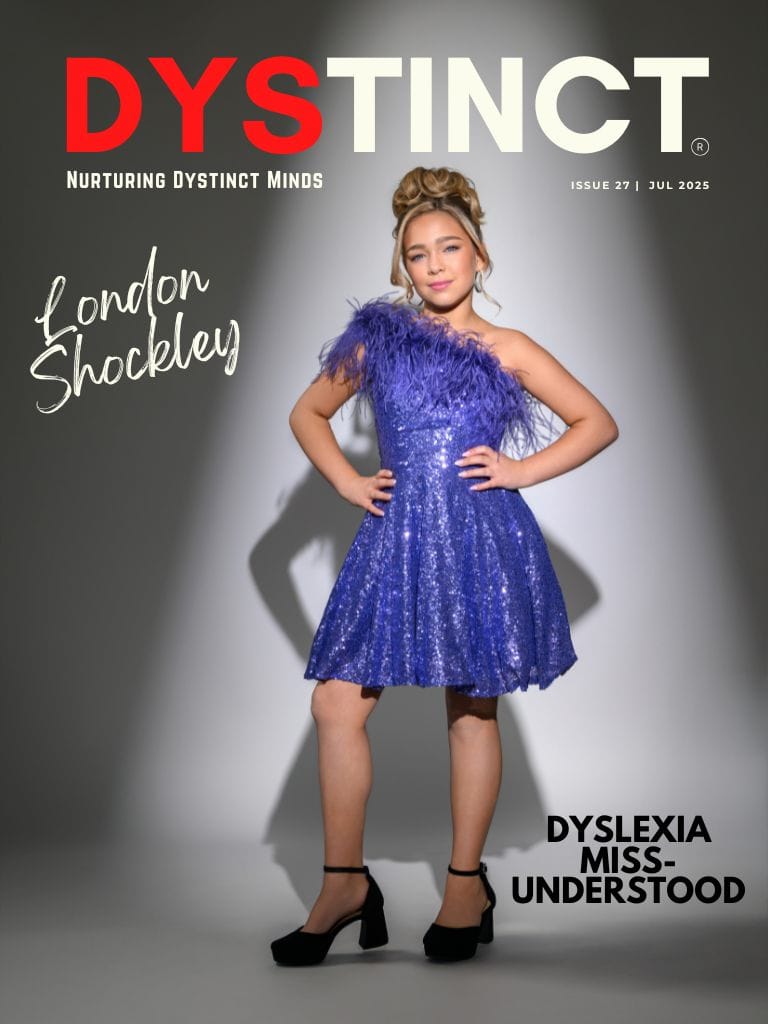
On the cover is London Shockley.
London Shockley channels her journey with dyslexia into pageantry and advocacy, using her voice, platform, and community work to raise awareness, inspire others, and ensure no child feels alone, misunderstood, or unseen in their learning journey.
Topics Covered
Topics Covered
The July 2025 issue of Dystinct Magazine brings to you:
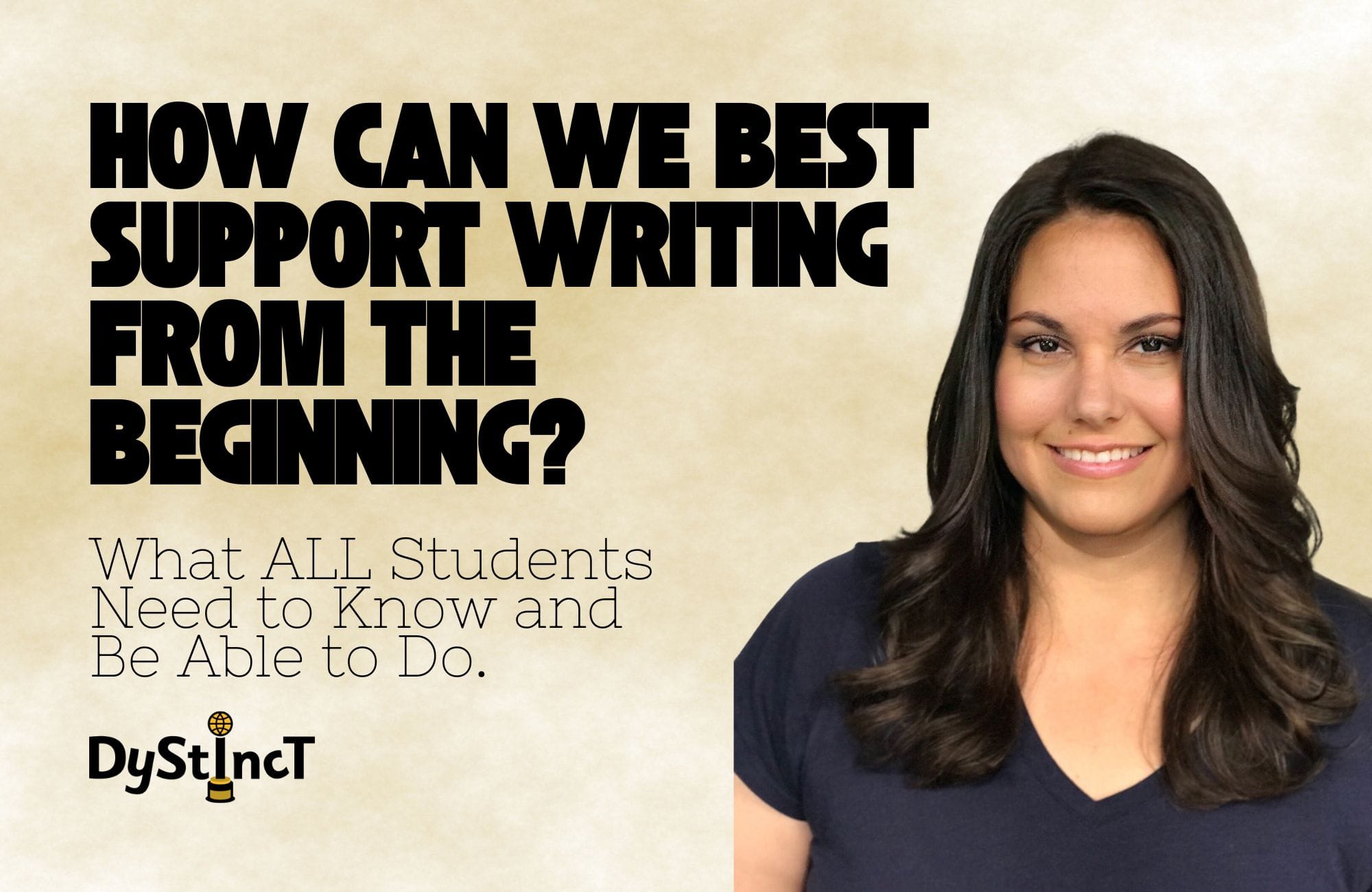
How Can We Best Support Writing from the Beginning? What ALL Students Need to Know and Be Able to Do | Amy Siracusano
Amy Siracusano offers research-based insights into the foundational writing skills students need to succeed, highlighting the importance of explicit instruction in transcription skills such as handwriting and spelling, along with early support for oral language and fine motor development.
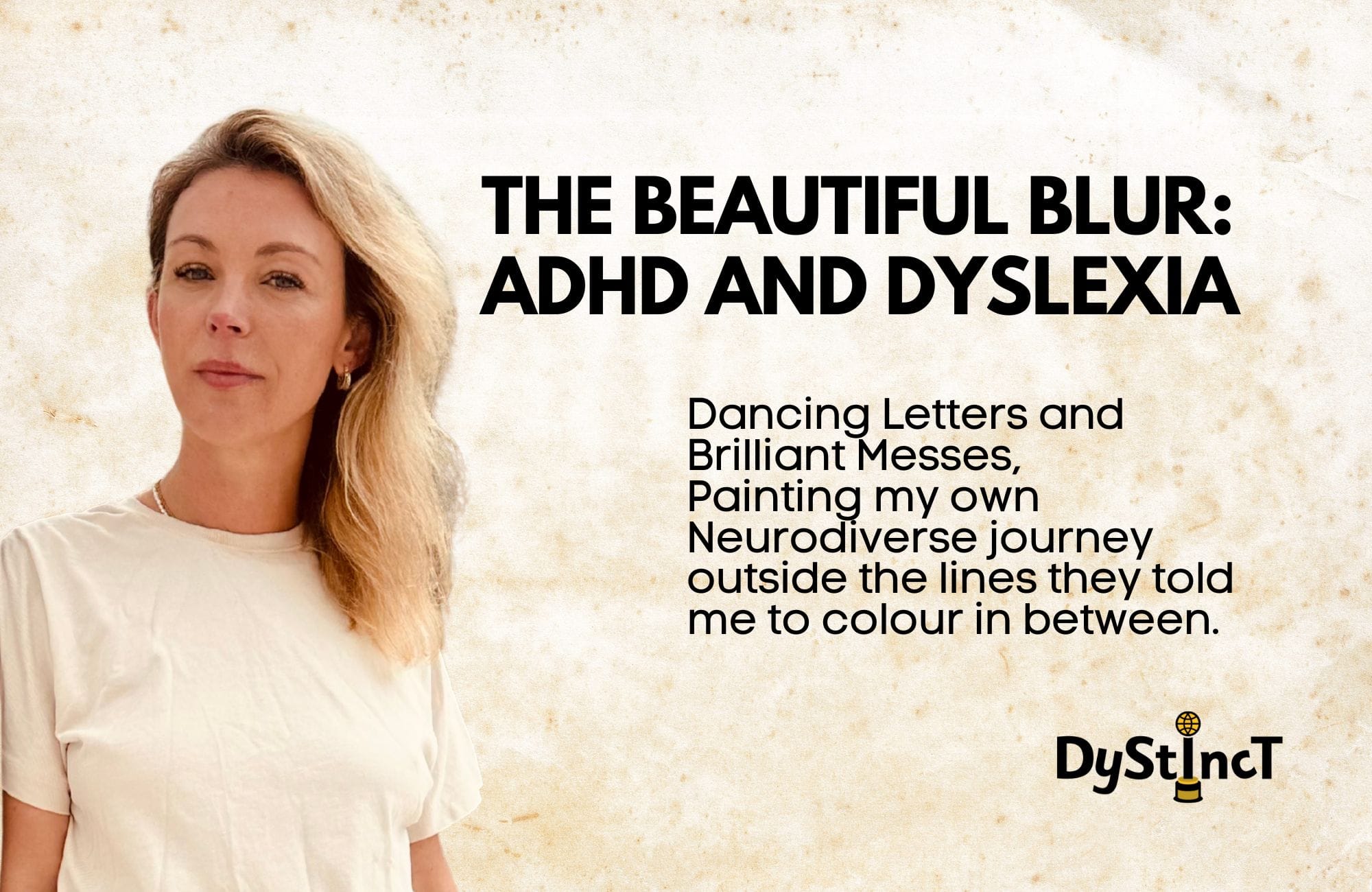
The Beautiful Blur: ADHD and Dyslexia | Alexis Costello
Alexis Costello shares her lifelong journey with ADHD and dyslexia, revealing how embracing her neurodivergence transformed shame into self-acceptance, chaos into creativity, and motherhood into a powerful reclamation of identity, showing that being wired differently is not a flaw but a source of strength, insight, and beauty.
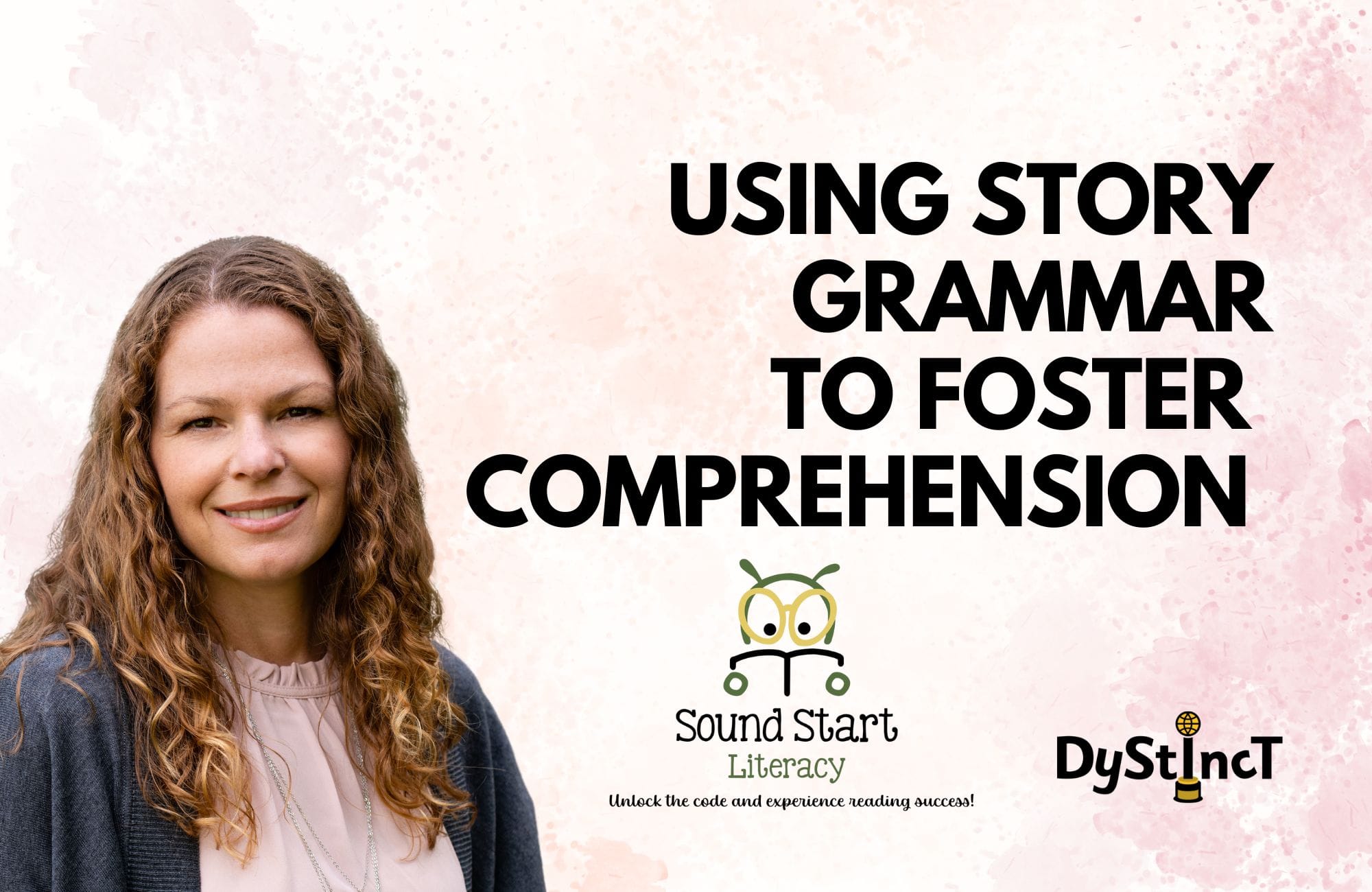
Using Story Grammar to Foster Comprehension | Jennifer Cerra
Jennifer Cerra shares how teaching story grammar, a structured approach to understanding narrative elements, can help struggling readers, especially those with dyslexia, build comprehension, reduce cognitive load, and connect more deeply with stories while strengthening oral language and decoding skills.
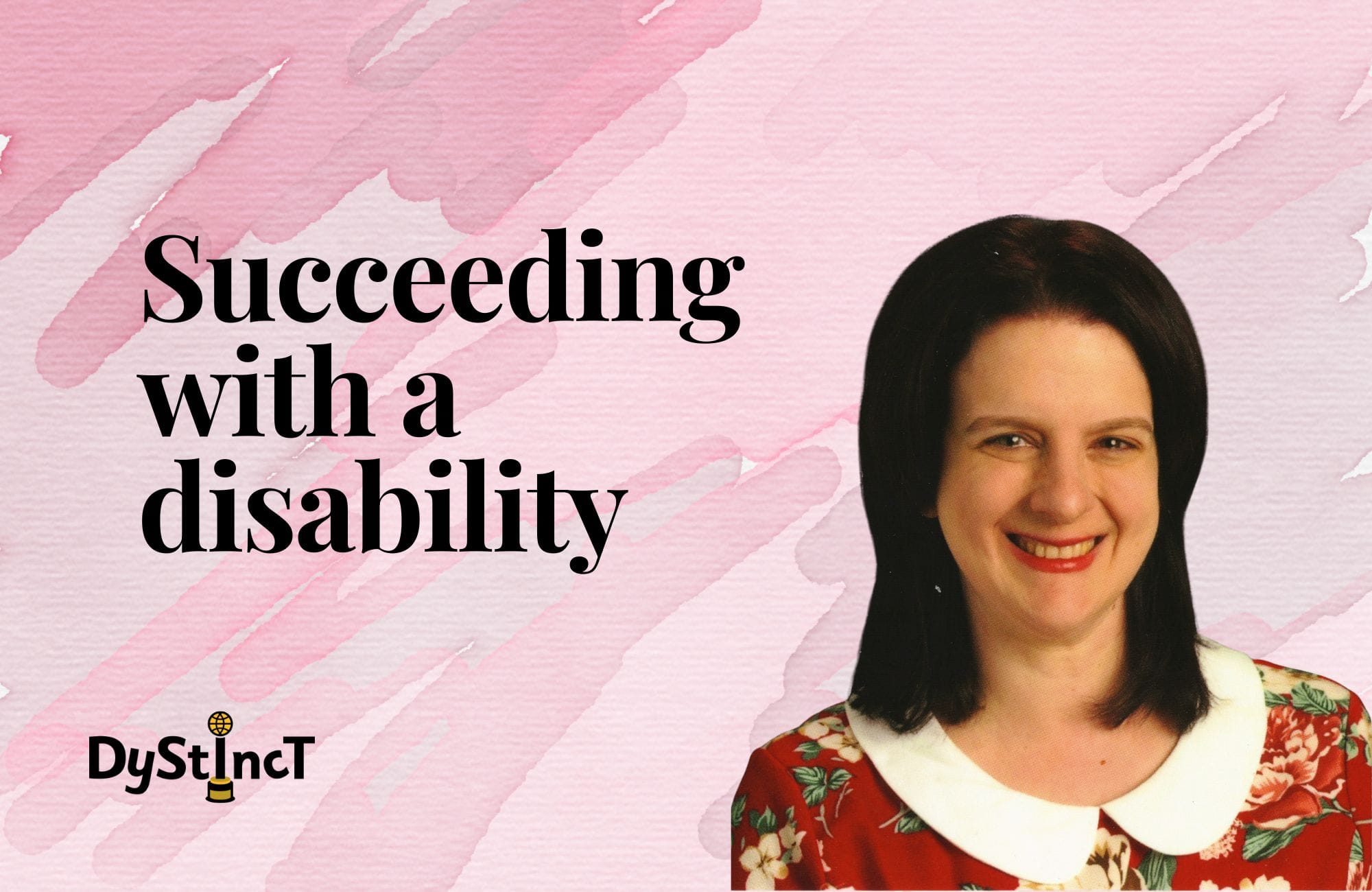
Succeeding with a disability | Michelle Steiner
Michelle Steiner recounts her lifelong journey with a learning disability, overcoming stigma, setbacks, and low expectations to achieve academic success, meaningful work, creative fulfilment, and personal growth, using her lived experience to empower others with disabilities to advocate for themselves and pursue their dreams.
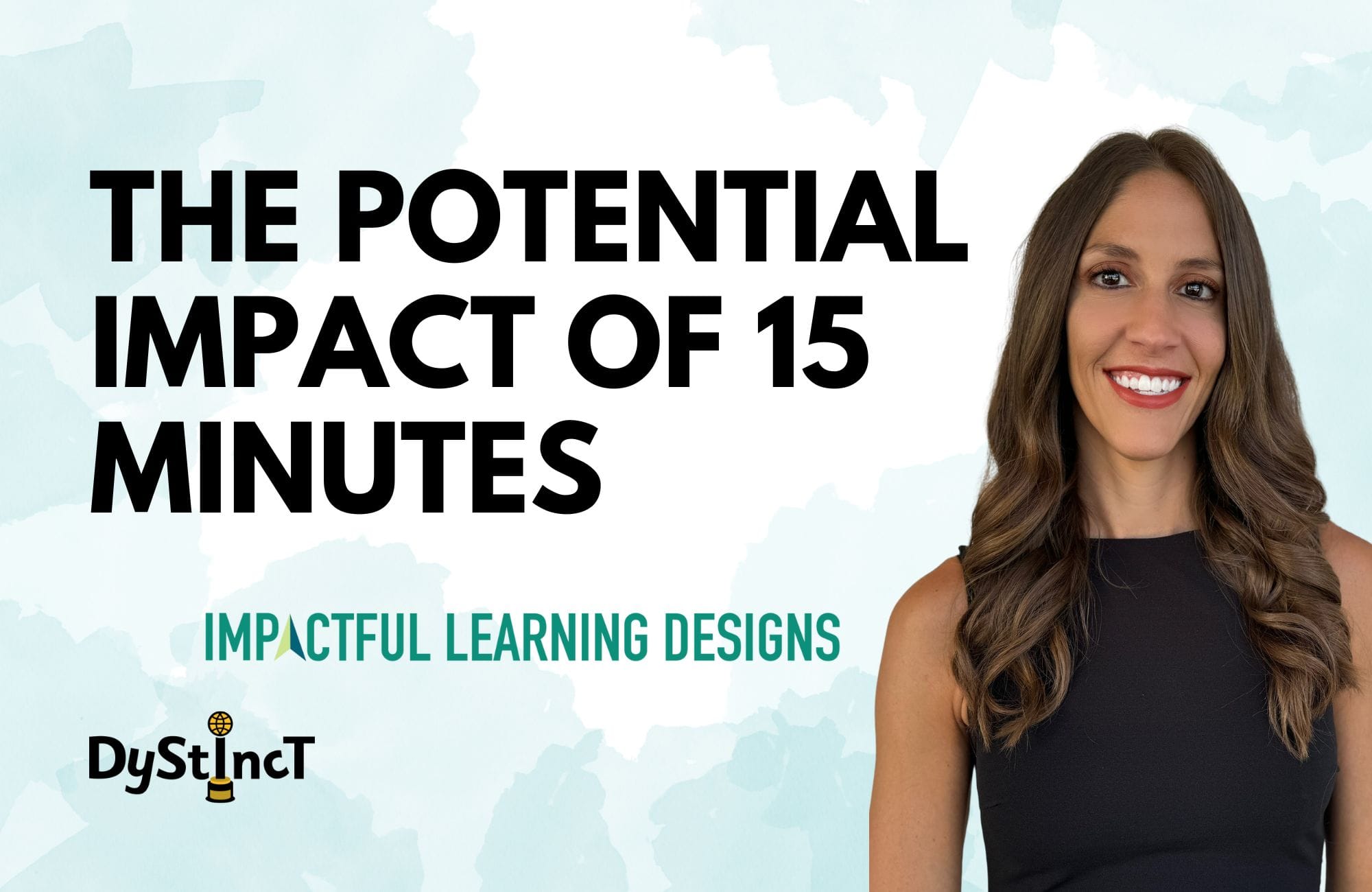
The Potential Impact of 15 Minutes | Dr Jennifer Throndsen
Dr Jennifer Throndsen introduces dyad reading, a simple and evidence-based strategy where a stronger reader and a developing reader read aloud together, showing how just 15 minutes a day with appropriately challenging text can significantly boost fluency, comprehension, and confidence in struggling readers.
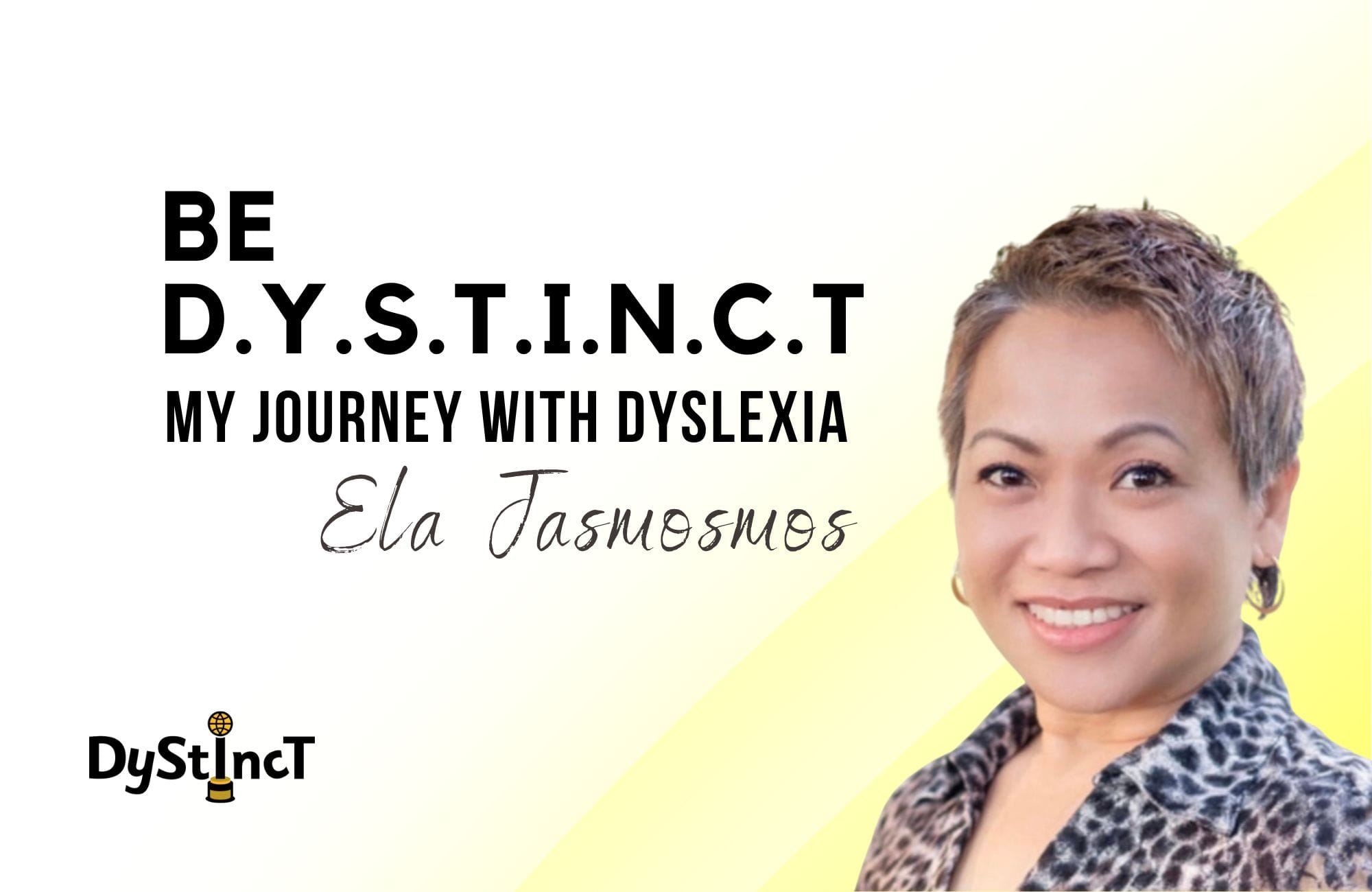
Be D.Y.S.T.I.N.C.T My Journey with Dyslexia | Ela Jamosmos
Ela Jamosmos traces her lifelong journey with undiagnosed dyslexia from silent childhood struggles to creative breakthroughs and leadership, ultimately transforming shame into self-acceptance and using her voice, art, and public speaking to empower others to embrace their difference and own their strengths.
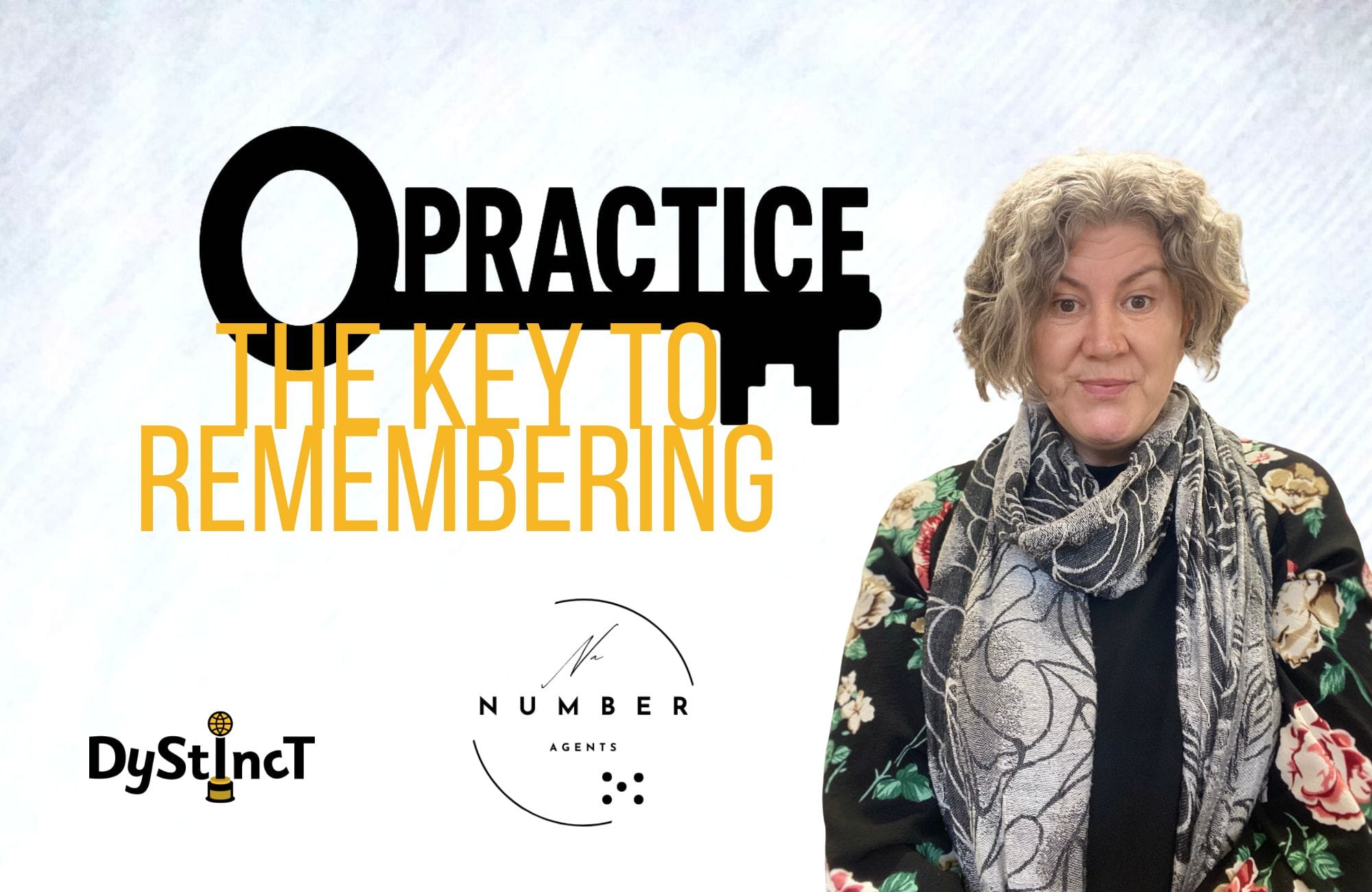
Practice, the Key to Remembering | Leslee Allen
Leslee Allen explains why consistent, deliberate practice is essential for helping students remember and apply what they learn, and shares practical, research-informed strategies such as spaced practice, incremental rehearsal, and writing fluency routines that support all learners, especially those who struggle, in retaining and using what they learn with confidence.
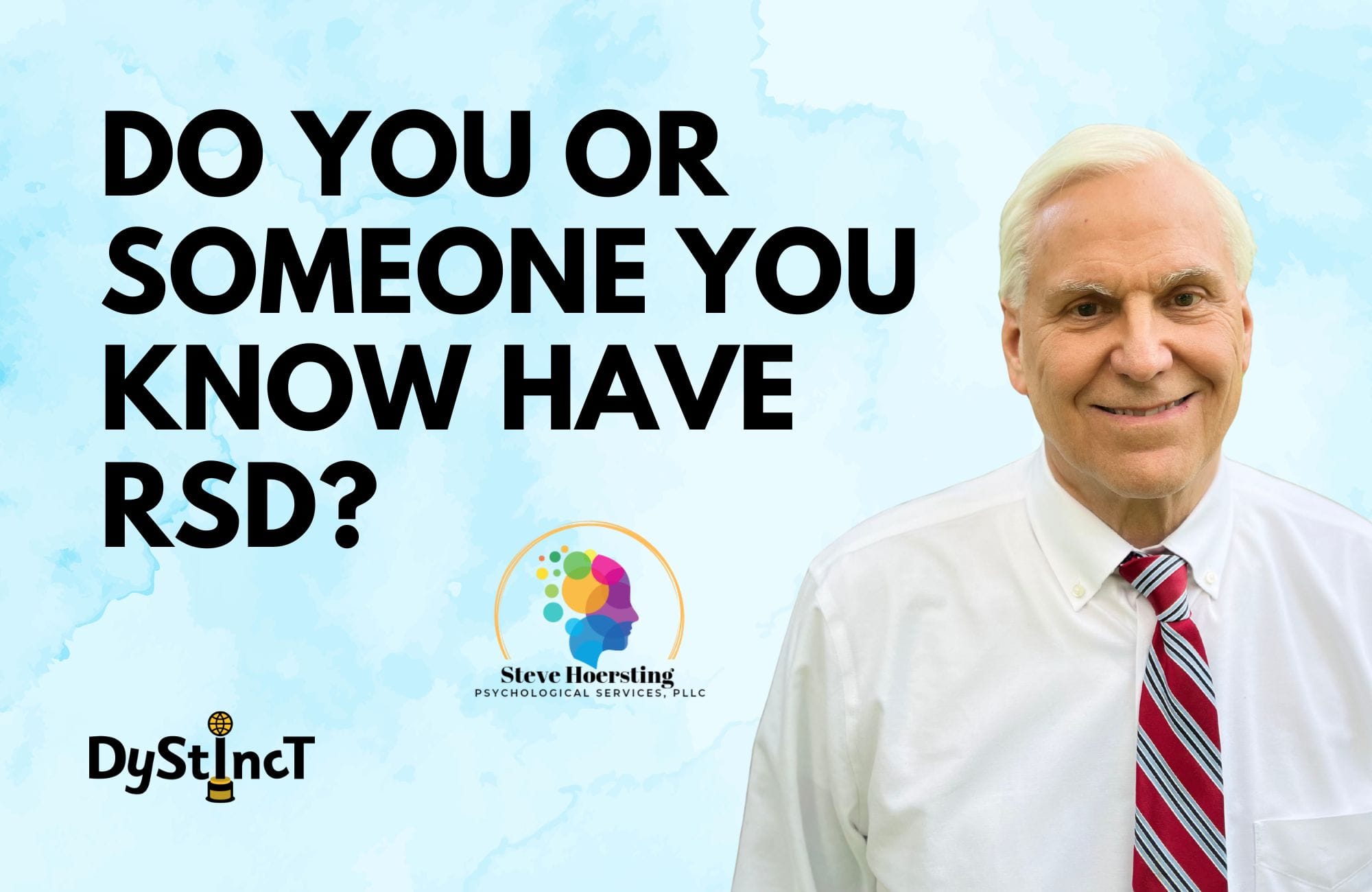
Do you or someone you know have RSD? Steve Hoersting
Steve Hoersting, a licensed psychological practitioner, unpacks the roots and realities of Rejection Sensitive Dysphoria (RSD), especially in neurodivergent individuals. He offers insight into how early criticism can shape deep-seated beliefs and shares practical tools like CBT and mindfulness to help manage the emotional impact.
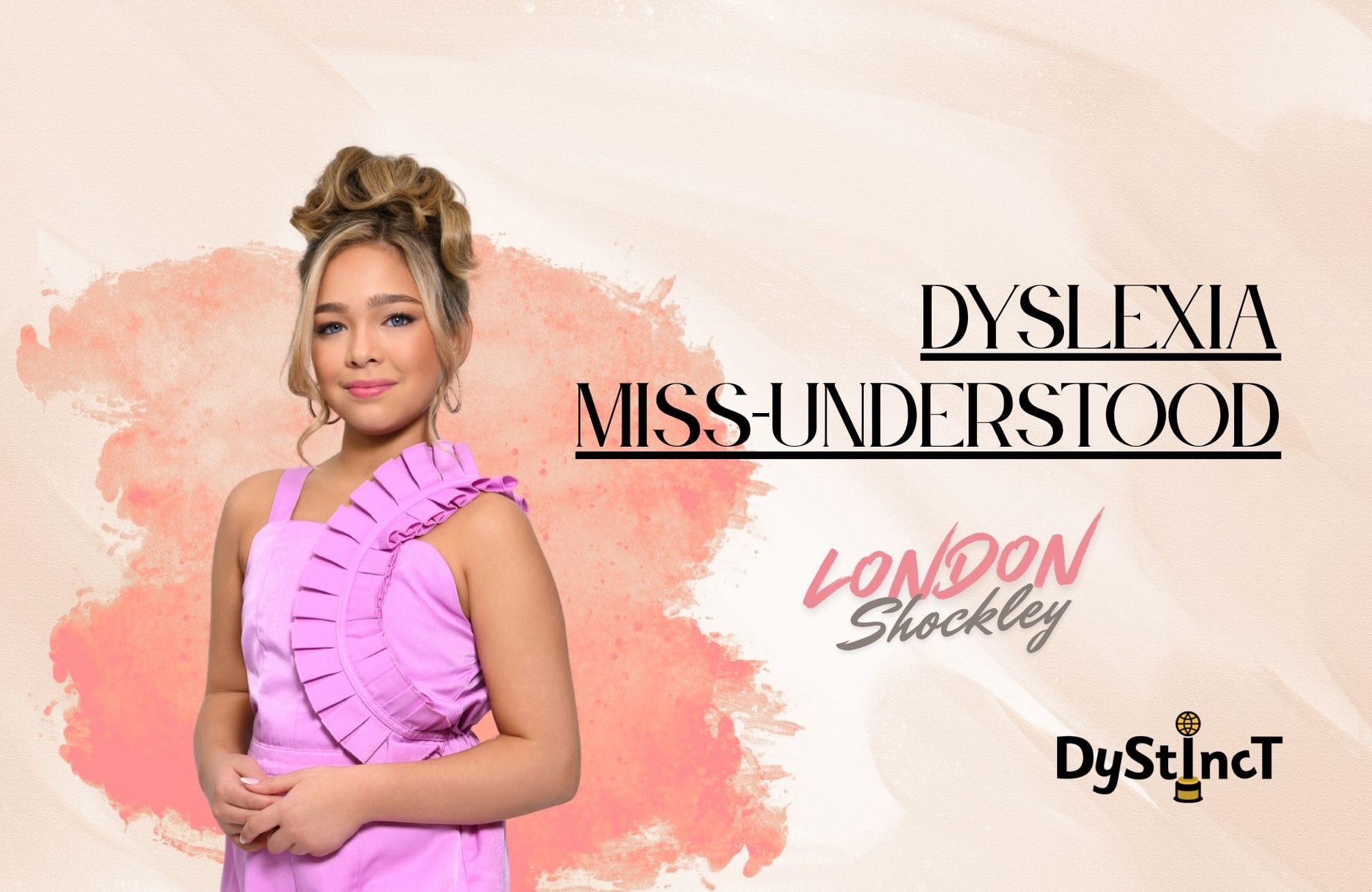
Dyslexia Miss-Understood | London Shockley
London Shockley channels her journey with dyslexia into pageantry and advocacy, using her voice, platform, and community work to raise awareness, inspire others, and ensure no child feels alone, misunderstood, or unseen in their learning journey.
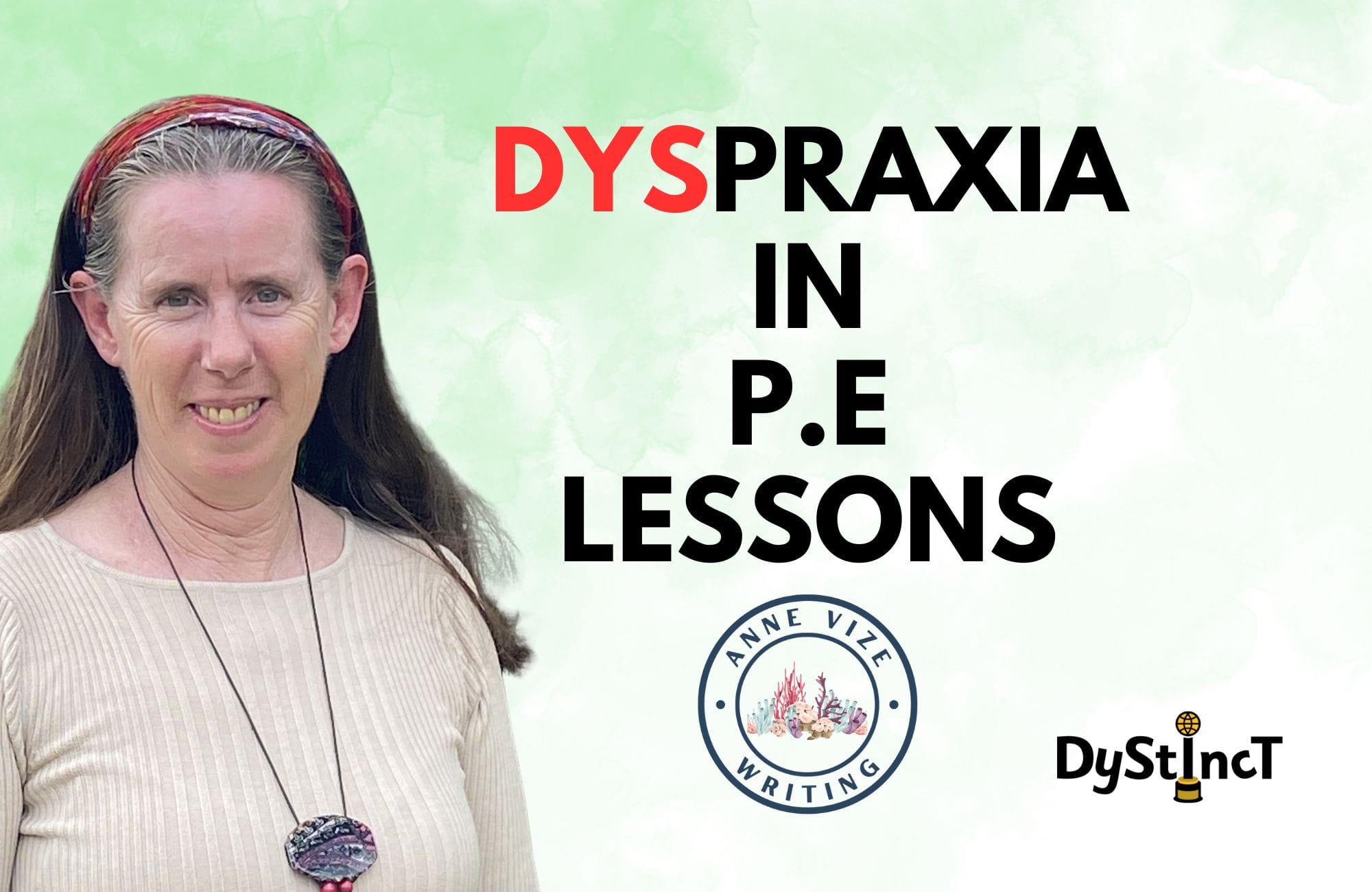
Dyspraxia in PE lessons | Anne Vize
Anne Vize shares practical strategies for making Physical Education lessons more inclusive for students with dyspraxia, showing how a thoughtful ‘notice and adjust’ approach from warmups and skill-building activities to cool downs can help PE teachers create supportive and engaging environments where all children can participate, succeed, and enjoy movement at their own pace.
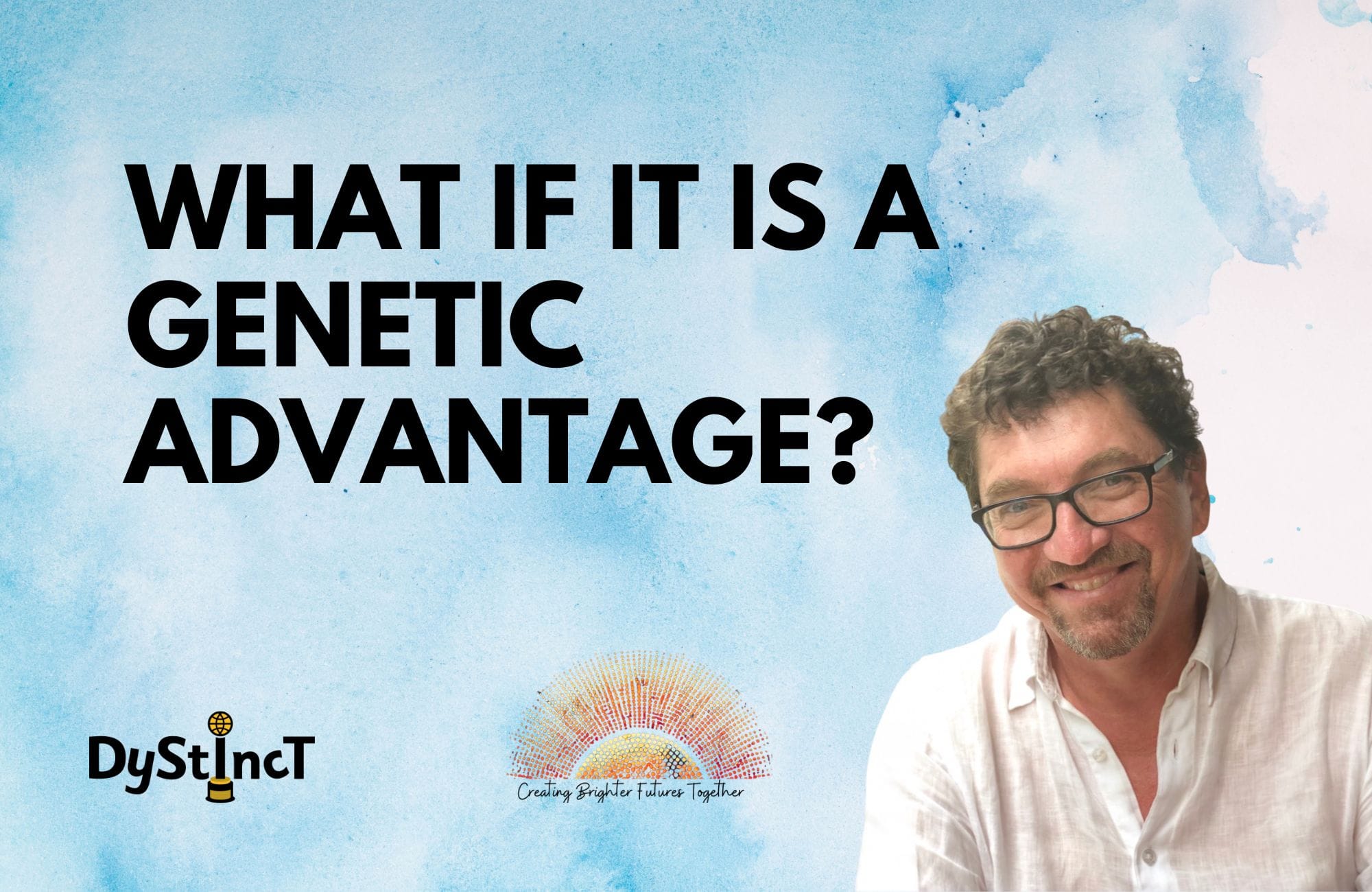
What if it is a genetic advantage? Simon da Roza
Simon da Roza challenges the deficit view of neurodivergence by reframing ADHD, autism, and dyslexia as valuable expressions of human diversity, arguing that modern education systems fail not because of these minds but because they were never designed for them.
Extracts from the Magazine
Extracts from the Magazine







